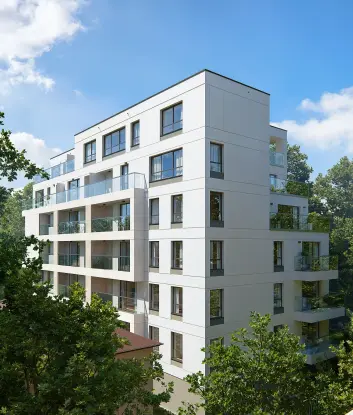Top 10 most common mistakes when buying a flat

Buying an apartment is one of the most important financial decisions in life, involving significant emotional and capital commitment. Even small oversights or lack of preparation can lead to legal, financial, or logistical problems later on. Below you will find the 10 most common mistakes made by buyers and tips on how to effectively avoid them.
Not verifying the developer
- What it means: Buyers often focus only on the offer and price, ignoring the developer’s track record, reviews, and financial condition.
- How to avoid: Check previous projects, ask for a list of reference clients, or visit industry forums. Pay attention to the completion deadlines of past investments.
Not reading the developer contract and information prospectus
- What it means: Skimming documents superficially — many important clauses (deadlines, penalties, handover rules) go unnoticed.
- How to avoid: Take time to thoroughly read the contract and prospectus or consult them with a real estate lawyer before signing.
Overly optimistic budget assessment
- What it means: Buyers consider only the purchase price, ignoring extra costs: notary, agent commission, taxes, finishing, furniture, insurance.
- How to avoid: Prepare a full transaction and furnishing cost calculator, including an additional 10–15% buffer for unforeseen expenses.
Not checking the legal status of the land and apartment
- What it means: Not verifying the land and mortgage register, mortgage burdens, or local zoning plans can lead to disputes or usage restrictions.
- How to avoid: Obtain an excerpt from the land and mortgage register (online or at the court), consult a notary, or check the local zoning plan on official government portals.
Making decisions too early under emotional pressure
- What it means: Seeing a beautiful apartment and time pressure (price promotions) can lead to impulsive contract signing.
- How to avoid: Make a list of „must-haves” and „nice-to-haves,” compare at least three offers, and give yourself a few days to think before making the final decision.
Not accounting for interest rate increases
- What it means: With a variable-rate mortgage, buyers fail to consider the potential rise in monthly payments if the WIBOR rate increases.
- How to avoid: Simulate loan repayments with different WIBOR + margin scenarios and ensure your household budget can withstand increases of even 30–50%.
Not conducting a technical inspection or doing it superficially
- What it means: Buyers sign the handover protocol without thoroughly checking for defects, then lose the opportunity to report issues later.
- How to avoid: Hire a construction inspector or prepare a detailed checklist yourself and spend several hours inspecting each room.
Ignoring the housing community issues
- What it means: Overlooking the regulations, administrative fees, or renovation plans can lead to unexpected costs and conflicts.
- How to avoid: Review the community statute, monthly fees, renovation fund contributions, and meeting minutes — this will help you anticipate future expenses.
Choosing the wrong floor or apartment orientation
- What it means: Ignoring the direction of sunlight, street noise, or elevator traffic can lower living comfort and the property’s value.
- How to avoid: Visit the building at different times of day, check noise levels, sun exposure, and possible obstructions (neighboring buildings).
Lack of a finishing and furnishing strategy
- What it means: Buyers postpone planning, which often leads to improvisation, higher costs of urgent purchases, and organizational chaos.
- How to avoid: Before signing the notarial deed, prepare an initial finishing project, a list of contractors, or a turnkey package so you can start work immediately.
A thoughtful approach to each of these points will help you minimize risks and enjoy your new apartment without unnecessary stress or financial surprises.
Read also
See all

Ivory on sale!
Find out more


